How the Pandemic Changed Us
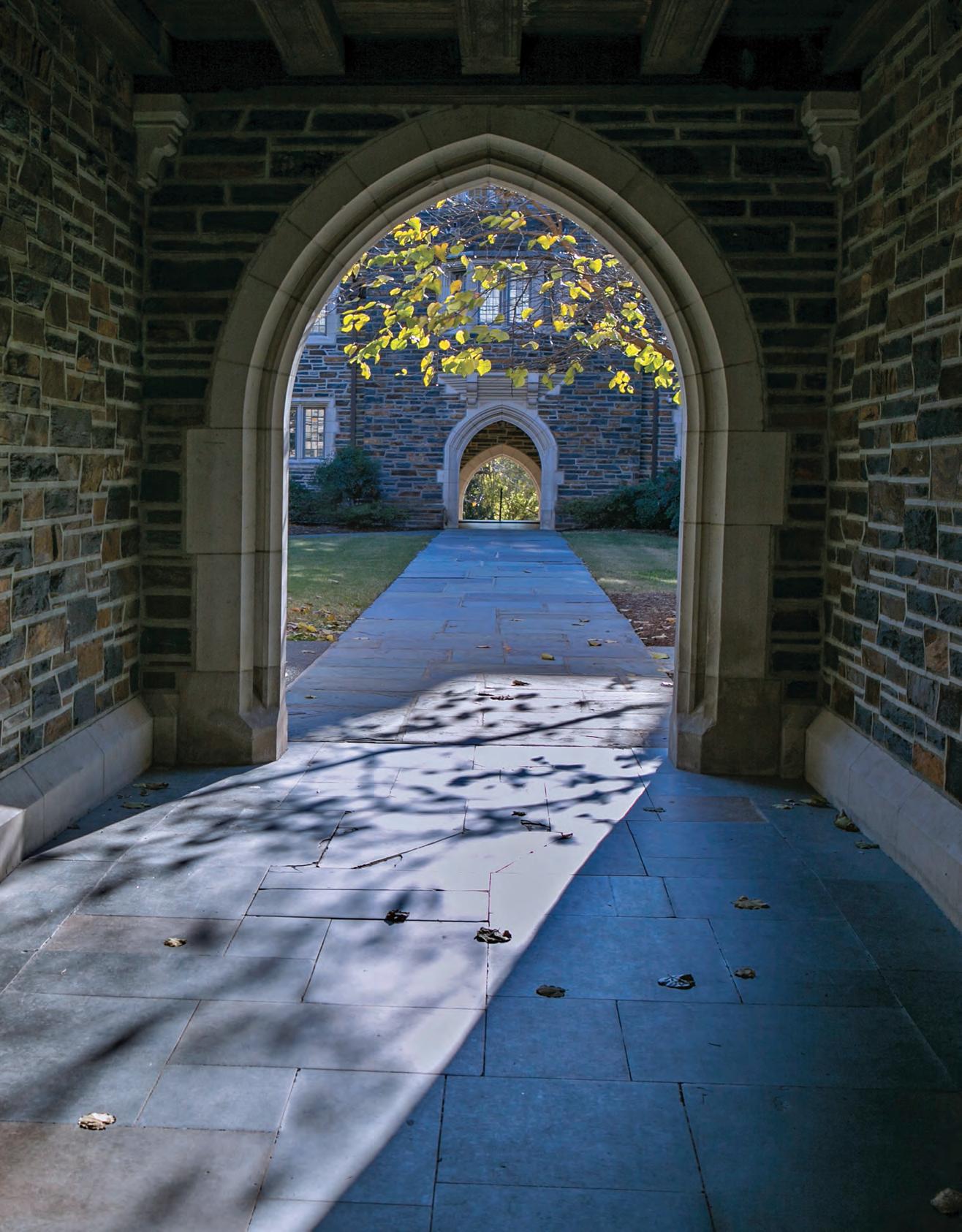
ELDER CARE SUPPORT 10 BLUEPRINT FOR DUKE’S FUTURE 12 A LIFELONG CURIOSITY 14 NEWS YOU CAN USE • FEBRUARY/MARCH 2023
LEANORA MINAI
‘Let the Journey Begin’
This issue of Working@Duke looks and feels a little thicker.
That’s because we’ve included a special insert that you can pull out and save to help you plan your professional development this year. Tucked between pages 8 and 9, you’ll find Duke Learning & Organization Development’s “2023 Course Catalog” with classes designed to enhance your business, leadership, and technical skills. In addition, you’ll discover special development and Certificate of Excellence programs that grow and build talent within Duke.
As Keisha Williams, assistant vice president of Learning & Organization Development, a unit in Duke Human Resources, puts it:
“Whether it’s one of our professional development courses, certificate programs or academies, you will gain the skills and tools you’ll need to remain relevant in your field and grow as a leader in your own learning. Let the journey begin.”
Lindsay Johnson, now the student records coordinator for the School of Nursing, took eight classes through Learning & Organization Development when she was an administrative assistant to earn the Certified Executive Administrative Professional designation in 2019.
That learning experience led Johnson to pursue a Master of Arts in higher education from Appalachian State University. She used Duke’s tuition assistance benefit, which covered her entire tuition for the twoyear program and allowed her to continue working.
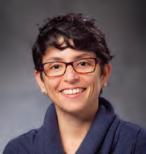
“It made me see possibilities beyond what I was doing,” said Johnson, who started working at Duke in 2008.
While Learning & Organization Development will still offer popular certificate programs and other courses in 2023, several classes are making a first-ever appearance. These include “Strengths Finder: Discover Your Greatest Talents;” “Leading through Generational Differences in the Post COVID Workplace;” and “Self-Leadership – Growing Your Career & Self Awareness.” Some technology classes such as Microsoft Visio and Microsoft OneNote are also new.

Seneca McLean has looked to Learning & Organization Development to build her leadership skills. She’s taken “Fundamentals of Coaching” (offered next in March) and “Moving from Peer to Supervisor” (offered next in April).
“To me, it’s very important to never stop learning,” McLean, program coordinator for the School of Medicine’s Faculty Appointments, Promotion and Tenure Office, told Working@Duke. “Not only can that help you in your career, but it keeps your mind busy and boosts your confidence.”
We hope you enjoy perusing the course catalog and the rest of this issue’s topics, which include a look at how the pandemic has changed us.
4 11 10
4
How the Pandemic Changed Us
From routines to deep losses, the global health crisis altered the lives of staff and faculty, who share personal stories from the past three years.
10 Get Support for Aging Relatives
The Duke Dementia Family Support Program offers free consultations and eight support groups to staff and faculty caring for an elder. A few of the support groups, such as the group for daughters, are not dementia focused.
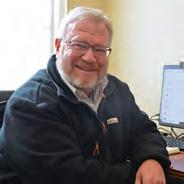
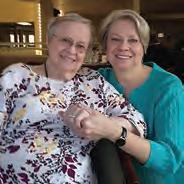
11
How to Find the Right Hybrid Schedule
With schedules as varied as their roles, staff and faculty follow strategies for building a hybrid routine.
12 University’s Strategic Framework provides a bold blueprint for the future
14 Working Toward Racial Justice: A lifelong curiosity guides Sandy Darity’s influential work on inequality
15
Jack Frederick Writer (919) 681-9965 jack.frederick@duke.edu
Stephen Schramm Senior Writer (919) 684-4639 stephen.schramm@duke.edu
Working@Duke is
quarterly by Duke’s Office of Communication

We invite your feedback and story ideas. Send email to working@duke.edu or call (919) 681-4533.

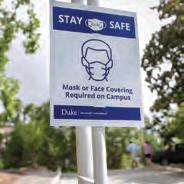
2 WORKING@DUKEWORKING@DUKE CONTENTS
2017, 2014 Gold, 2019, 2015, 2013, Silver, 2016, 2009, 2007 Bronze, Print Internal Audience Publications and 2012, 2011, 2009, 2008, 2007 Gold Medal, Internal Periodical Staff Writing Visit Working@Duke daily on Duke Today: working.duke.edu Editor/Executive Director of Communications: Leanora
leanora.minai@duke.edu
Discount: Framed with care at a savings
Minai (919) 681-4533
Design & Layout: Paul
paul.figuerado@duke.edu
Assistant Vice President: Paul S. Grantham (919) 681-4534 paul.grantham@duke.edu Graphic
Figuerado (919) 684-2107
Contact us
published
Services.
Editor’s
Note
Cover: Duke University’s campus. Photo by University Communications.
BRIEFLY
Stay active with the Duke Run/Walk Club
Organized by LIVE FOR LIFE, the staff and faculty wellness program, Duke Run/Walk Club returns for the spring season on March 13 through May 24.

To take part, participants at all fitness levels register and track and report running and walking with an opportunity to earn LIVE FOR LIFE dollars — monopoly-like money used for fitness items like water bottles, yoga mats and Fitbits.
“It’s fun for a sense of camaraderie with colleagues and there are good health benefits too,” said Lauren Bullock, a fitness specialist for LIVE FOR LIFE. “With physical activity, whether running, jogging, walking or a mix of all three, it increases energy, decreases stress and lowers the risk of health diseases.”
Deanna Knighton, assistant director, career development in the Nicholas School of the Environment, has participated in the Duke Run/ Walk Club to help her to train for a half marathon in the fall.
"It’s nice to have some accountability,” Knighton said. “It feels like an accomplishment to select that I exercised this day, this day and this day.”
LIVE FOR LIFE is assessing whether the club will remain virtual or include an in-person component. For more information and updates, visit hr.duke.edu/runwalk
Earn a Green Workplace Certification
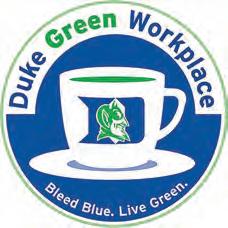
Reduce your environmental footprint and build a culture of sustainability within your team by pursuing a Green Workplace Certification through Sustainable Duke.
To earn the certification, a school, department, or unit must hold a workshop on green actions and choices and complete a checklist of 58 steps and behaviors that can reduce an area’s environmental footprint, such as switching to reusable silverware and mugs in breakrooms. With Duke announcing its institution-wide commitment to combat climate change last year, making your corner of Duke green is a way to contribute to the larger effort.
As of the end of 2022, 102 offices have earned the Green Certification.
“Taking care of your little piece of the world is something most people should think about doing,” said Jason Elliott, assistant director of Sustainable Duke. “It may not bring about a big change, but it is change, and we appreciate anyone who is willing to step up and do something.”
There are also specialized Green Certification programs available for labs, classrooms, dorm rooms and events. They offer sustainability advice tailored to specific settings.
For more information, visit sustainability.duke.edu
Learn IT @ Lunch offers insights on tools to fit needs
Learn
the building blocks of diversity, equity, and inclusion
The Office for Institutional Equity (OIE) will host two “DEI Building Blocks” workshops in March.
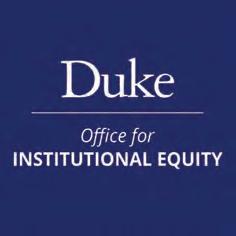
The interactive sessions on March 1 and March 28 focus on the foundational concepts related to diversity, equity and skill building toward culture change. Participants will learn about terms and definitions, and develop individual and collective action strategies for implementing change. The workshops have no charge and are open to all Duke Community members. They will be facilitated by LeighAnne Royster, assistant vice president for Diversity, Equity, and Inclusion.
“What we really try to do is meet people where they are, invite them into a conversation and create a space where they can grow and develop authentically,” Royster said.
For more information, visit duke.is/yuwqq
The Office of Information Technology’s Learn IT @ Lunch series returns this spring with workshops tailored to meet specific needs many staff and faculty face.
The latest batch of nine workshops, which run through May 3, will cover topics such as Canva tips for social media; the uses and concerns of AirTag tracking devices; a virtual tour of the Bryan Center Studio; and how to use Zoom Meetings and the Airtable data management system.
“We’re trying to zero in on specific specialties that people may be interested in,” said OIT Training and Education Coordinator Trina Rodriguez. “We want to make sure you don’t have to go through things you already may know in order to learn about the tools which can take you to the next level.”
The no-cost, hourlong sessions are open to staff, faculty and students and held every other Wednesday. Some of this spring’s workshops will offer the option of participating virtually or in-person at Duke University Libraries.
For a full schedule of this spring’s Learn IT @ Lunch sessions, visit oit.duke.edu/what-we-do/services/learnitlunch
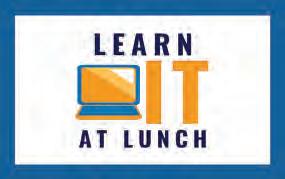
working.duke.edu 3
How the Pandemic Changed Us
From routines to deep losses, the global health crisis altered lives of staff and faculty
become complicated since her dad always got a kick out of pictures she sent of the creative designs left in her latte foam.
Or maybe it will simply be the small pieces of her daily routine — getting into work in the morning, coming home at night — experiences that warranted a quick text to her dad, who always wrote back with love and encouragement.
“He was my best friend, my biggest supporter, my biggest cheerleader,” said Hernandez, 28, a clinical research coordinator with the Department of Population Health Sciences. “I am who I am because of him.”
The pandemic changed the way most of us lived. We learned how to work remotely or gained new appreciation for human connection. And, for the loved ones of the roughly 1 million Americans who died from the virus, life will forever feel incomplete.
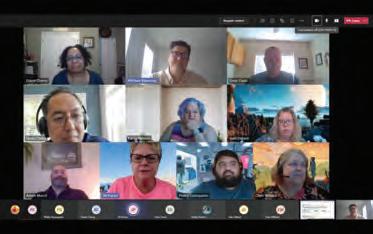
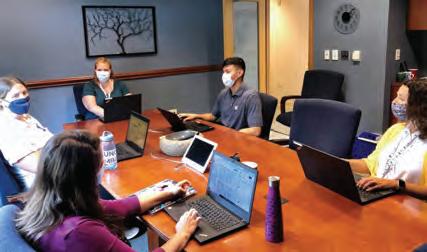
Since her father’s death from COVID-19 in 2021, Alexy Hernandez’s days have become emotional minefields. Any small thing can be a gut punch, reminding her of what’s lost.
Perhaps it’s a football highlight, since she and her father, Josue, shared a love of the sport. Coffee has
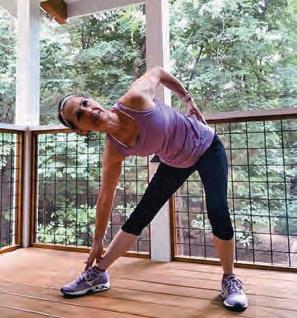

While the worst of the pandemic may be behind us, its effects linger. According to a Gallup poll, 53 percent of U.S. adults don’t expect their life to ever be the same as it was before the pandemic.
“We all felt this,” said Rachel Kranton, the James B. Duke Professor of Economics who, early in the pandemic, contributed to Project ROUSE, an
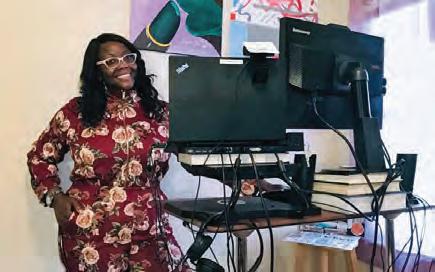
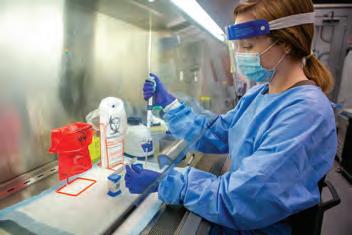
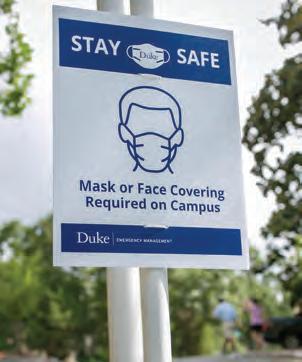
4 WORKING@DUKE
Alexy Hernandez, left, and her father, Josue, right, enjoyed watching sports such as football, basketball and soccer together. Courtesy of Alexy Hernandez.
independent Duke faculty research study that looked at how staff and faculty at Duke coped with changes to life, work, and well-being.
Project ROUSE showed that the pandemic had profound effects on everyone, including that, during the pandemic’s first year, roughly 40 percent of nearly 5,000 study respondents were at risk of moderate or severe depression.
As the pandemic’s difficult early days fade, Kranton said that other changes will likely endure, such as a willingness to connect in new ways, reassess careers, or build lives with more flexibility.
“I think there’s probably a new normal, and I think that new normal includes both good things and bad things,” Kranton said.
Hernandez’s life won’t be the same after her father’s death, but she is moving forward. She’s learned not to stress about trivial things and thinks often about how she can make her father proud. Nothing, she said, can be taken for granted.
“Losing my dad has completely changed how I view and interact with the world and has given me more clarity on what I value,” said Hernandez, who has worked at Duke for four years. We asked staff and faculty to share how the pandemic changed their lives, and here’s what some colleagues shared.
‘I’ve learned from students’
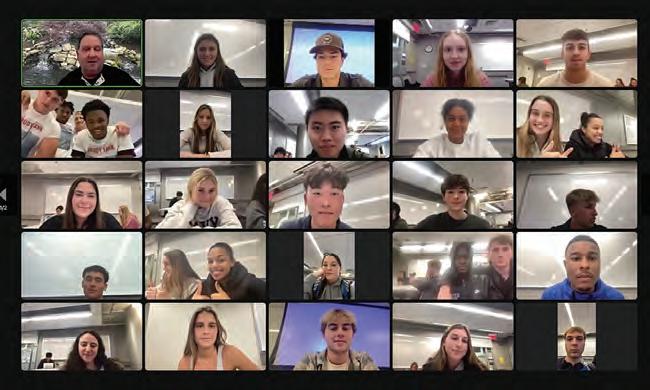
“It’s a new normal. You’ve got to deal with what you’ve got to deal with. Teaching markets and management, I’ve tried to move on and try to keep things fun. I like to make my courses interactive. So whether that’s changing materials or adding new things to a class, I’ve had to adapt. A lot of new stuff I’ve learned from students, whether it’s using polls, or Kahoot, or other activities. You’ve got to keep things fresh. The world is changing, you’ve got to change with it.”
George Grody, 64, Lecturing Fellow of Markets & Management, Trinity College of Arts and Sciences
Value of Life
“I appreciate more than ever before, not only the value of life, but a strong appreciation for others in the respiratory field and healthcare. I have been a respiratory therapist 33 years, and I’ve worked at Duke 35 years. Many have come and some have gone from this world. It’s devastating when you’ve worked so hard on patients, and they don’t make it out. Nothing can replace the value of life and what it means. Life is so important, and each and every day that you work with your patients is important. This all taught me a lot about what it means to really care for your patients, and it taught me a great deal of humility in caring for those who needed me.”
Pamela Bowman, 63, recently retired Respiratory Care Practitioner, Duke Regional Hospital
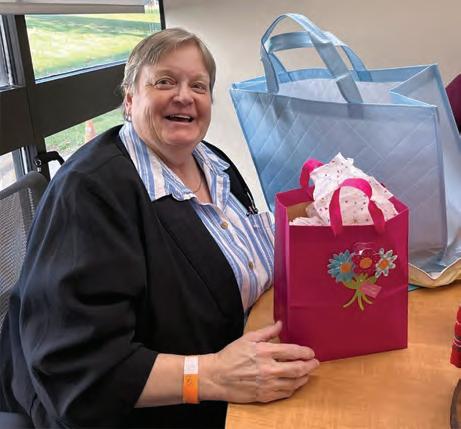
working.duke.edu 5 >>> continued on page 6
George Grody, top left, leads a virtual session of his MMS 197 Organizational Leadership & Management class. Courtesy of George Grody.
Pamela Bowman opens gifts at her retirement party at Duke Regional Hospital in November 2022. Courtesy of Pamela Bowman.
Out of the Quiet
“Though it’s crazy to say, my life started to flourish during the pandemic in more ways than one. I went back to school at the beginning of the pandemic at Durham Technical Community College to study business. I got in the best shape of my life by focusing on clean eating, and I lost 35 pounds. I started earning more money by taking a job at Duke. The pandemic was a time for me to quiet down the noise around me. Personally, I was able to shut out the world, decide what I really wanted out of life, and for myself, and start making those things happen. Ever since things started getting back to how they were pre-pandemic, those progressions I’ve made slowly started to derail. I gained back the 35 pounds I lost once the world started to open up again, and it’s just been harder to do everything I was doing to better myself every day. I went into a bit of a depression, but now I’m finally coming out of it. I’m back down 20 pounds. I’m learning how to cope with things and get back to being able to do those things that progressed for me and made me happy, even though I’m not able to get the same quietness I once had.”
Sadie Horton, 27, Staff Assistant, Academic Support, Fuqua School of Business
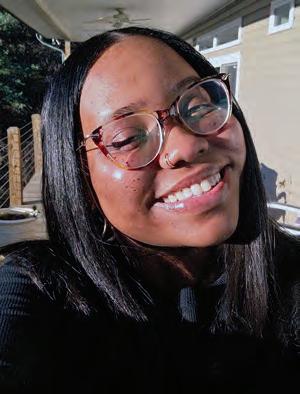
Cherish Loved Ones
“My mom, Johnnie Mae Snipes, was put on hospice on Jan. 11, 2021, and she passed away on January 20, 2021, at age 83. Me and my sisters were holding her hand, and, needless to say, we lost the strongest woman we ever knew. Our queen was gone. My mother had six daughters, 17 grandchildren, 44 great grandchildren and seven great, great grandchildren. My mother passed away from dementia and COVID. The past few years have taught me to never take anything for granted and to cherish your loved ones. It also has showed me how the world can change in one day. But one thing I know for sure that will never change is God is still in charge.”
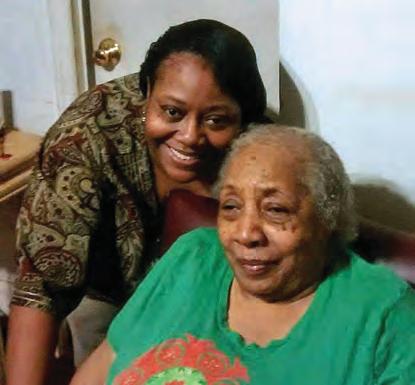 Clara Bailey, 58, Staff Assistant, Department of Medicine, Oncology
Clara Bailey, 58, Staff Assistant, Department of Medicine, Oncology
‘I
don’t go anywhere without my mask’
“When Dr. Anthony Fauci came out and said we need to wear masks in public, I did it. I’m claustrophobic, so when I first started wearing the cloth masks, I would have panic and anxiety attacks, particularly at the grocery store. Over time, I got used to it, and I started feeling safer by wearing my mask. Now, I don't think I will ever go into another crowded event without a mask. As a woman, we have our purses. We don’t go anywhere without our purses. Now, I don’t go anywhere without my mask. Since wearing my mask, I haven't caught a cold, let alone anything else. It's a piece of cloth, no big deal.”
Sandy Ouellette, 62, Access Specialist, Consultation & Referral Center
>>> continued on page 7
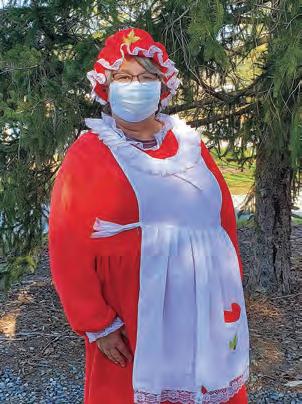
6 WORKING@DUKE
For Sadie Horton, the pandemic has been a time to work on herself. Courtesy of Sadie Horton.
Sandy Ouellette plays Mrs. Claus at the 2020 Jordan Lake Christmas Tree Farm. Courtesy of Sandy Ouellette.
Clara Bailey spends a quiet moment with her mother, Johnnie Mae Snipes, before the pandemic began. Courtesy of Clara Bailey
Rethinking What’s Most Important
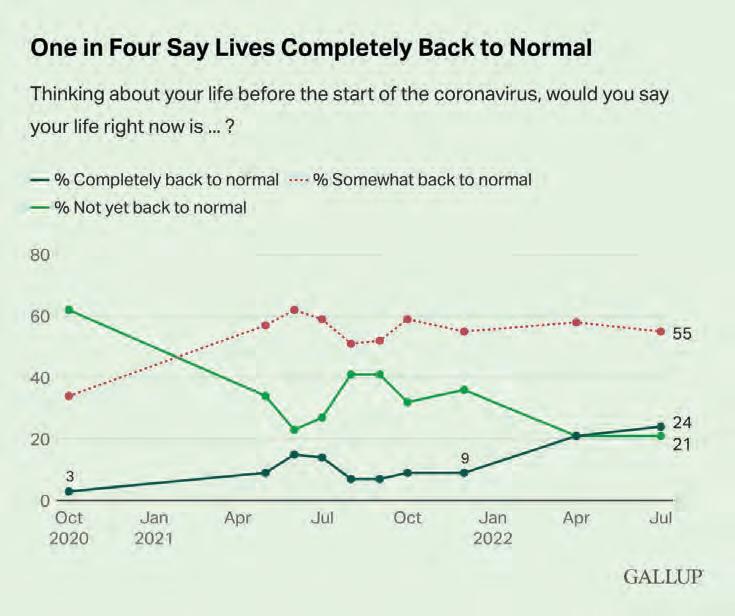
“During the pandemic, my wife got a new job in Virginia, and because I’ve been working remote since March 2020, it made it easy to move with her because, in the past, somebody would have had to quit their job, find a new job, and do all kinds of stuff. Personally, the pandemic has made me rethink what’s most important in life, such as making sure to set aside time for family and friends. Now, I get to spend more time with my wife. We can do house projects, take our dogs out and explore. Now that our parents are getting older, we try to take advantage of any time we can spend with them. The pandemic made spending time with people who are important to you a little extra important because they’re what helped me get through.”
Christopher Morgenstern, 39, Administrative Manager, Cardiology
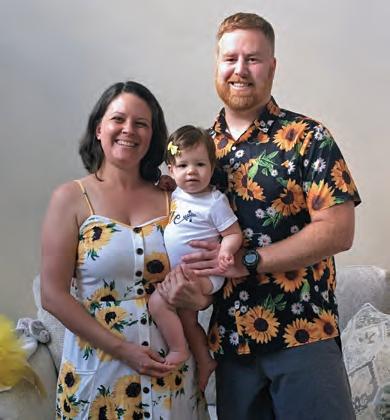
‘180-degrees different’
“My wedding, honeymoon, and bachelorette party were all canceled due to COVID, so my husband, Brent Durden, and I got married in our backyard with just our parents. We were going to wait several years to start a family so we could travel but decided to seize the day during quarantine after buying a house. Now, we have a beautiful 18-month-old daughter, Eliana. As tragic as the losses we experienced as a country and community have been through this pandemic, my entire world is 180-degrees different than it was before COVID, and it makes me so grateful to have the family that I do.”
Tricia Smar, 36, Education and Training Coordinator, Duke Trauma Center
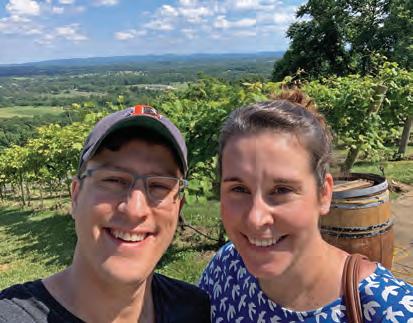
working.duke.edu 7
Since moving to Virginia in October 2020, Christopher Morgenstern, left, and his wife, Tara, have enjoyed exploring their new home and visiting places in the Virginia foothills. Courtesy of Christopher Morgenstern.
A survey of American attitudes about the COVID-19 pandemic from August 2022 shows that roughly three out of four people don’t think life is fully back to pre-pandemic normal. Source: Gallup.
Tricia Smar, left, and her husband, Brent Durden, celebrated the first birthday of their daughter, Eliana, in fall 2022. Courtesy of Tricia Smar.
>>> continued on page 8
‘I’m fulfilling my bucket list’
“I have terminal prostate cancer. I live one day at a time. They gave me 18 months to live about six years ago. During the pandemic, I retired to fulfill my bucket list only to find disappointment. I made all sorts of plans, but everything was shut down so my plans were shot. I returned to work. I have a love for nursing and have no regrets coming back to patient care. I missed interacting with people. I missed my coworkers, I missed the patients. Now I travel, and I'm fulfilling my bucket list, but I always look forward to coming back to Duke for both my own care and to care for our patients.”
Doug Buehrle, 68, Clinical Nurse, Apheresis, Duke University Hospital
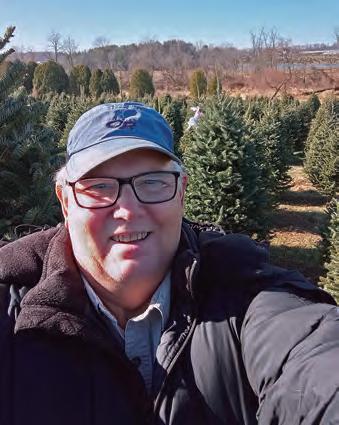
Savor Small Moments
“I learned to make the best out of a horrific situation. My kids, Derek and Joshua, were 5 and nearly 3 when COVID hit. In the clinical research field, we had to scramble to see which trials could keep going and which ones would have to go on pause. We had to be very flexible to work around each other’s schedules and everyone’s kid’s schedules. But I got to spend a lot more time with my kids than I ever would have if COVID didn't hit, so I'm grateful I was able to do it. We got to spend time going to the park and flying kites since the playgrounds were closed. We went hiking and exploring since the museums were closed. Those were memories I am thankful to have made, and I'm hoping they don't fade.”
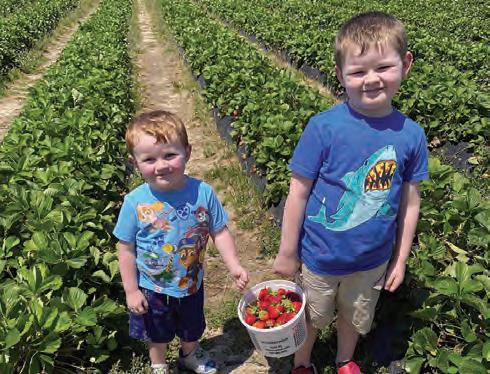 Kristin Byrne, 41, Clinical Research Coordinator, Hematology
Kristin Byrne, 41, Clinical Research Coordinator, Hematology
‘Packed up my car with as much as I could fit into it’
“I graduated from nursing school at George Fox University in Oregon about a month after lockdown happened. I have a grandmother in High Point, so I started applying to hospitals in North Carolina, and Duke turned out to be the best option. In October of 2020, I packed up my car with as much as I could fit into it, and I drove across the country with my dad. I left my family, friends, my church back in Portland, and I’ve had to build an entirely new life here. My first nursing job was working for the medical-surgical float pool at Duke University Hospital, which basically staffed the COVID-19 floors for a while. I was thrown into the thick of it, and I really had to stay on my toes all the time. It was really hard, and it was really a dark period in my life, until I started to get my feet settled. I just started to put myself out there out of my comfort zone, and I started inviting people to do things with me. I found Bright City Church too. Over time, I started to find those little sparks of hope, when you send a patient home instead of the ICU. I’ve learned a lot from my nursing career, and I’ve learned a lot about myself and how to take care of myself.”
Lauren Berky, 25, Clinical Nurse, Internal Staffing Resource Pool
>>> continued on page 9
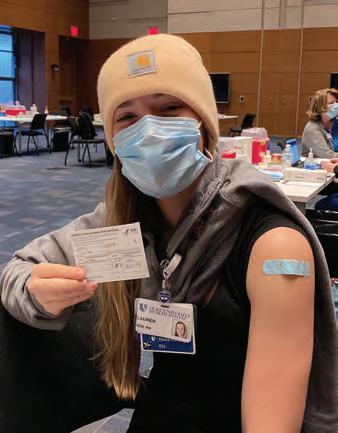
8 WORKING@DUKE
Doug Buehrle has made up for lost time, traveling to places such as Las Vegas, Colorado and Canada. Courtesy of Doug Buehrle.
Among the fun memories Kristin Byrne made with her family during the pandemic were strawberry picking adventures at DJ’s Berry Patch in Apex with sons Joshua, left, and Derek, right. Courtesy of Kristin Byrne.
After moving across the country to care for patients, Lauren Berky celebrates receiving her first COVID-19 vaccine at Duke in 2021. Courtesy of Lauren Berky.
‘More Openness to Change’
“I think COVID has opened the clinical community to change more than ever before. Sharing data has replaced hoarding data. Technology has come so far, and we had a hard time getting people to change the way they think about data. I think COVID opened their minds that we need other ways of dealing with data, particularly that the patient needs to be the centerpiece of everything that we’re doing. Some people have said to me, that five years ago we’d have been laughed at for some of the things we’re trying to do. But now, everybody is at least willing to have the conversation.”
William Edward Hammond, 88, Professor of Biostatistics and Bioinformatics, Family Medicine and Community Health
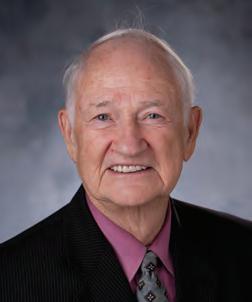
‘Never take tomorrow for granted’
“I am much more committed to ‘living in the moment,’ appreciating what I have, and looking inward. At home, I find joy with my husband. I walk much more. I cook at home almost all the time. And, maybe most important, I appreciate the beautiful natural environment around our home on Morgan Creek in Chapel Hill, where husband, David, and I began walking nearly every afternoon in January 2021. I’ve learned to never take tomorrow for granted. To appreciate friendships and family and the place where we are, now. To be OK with less ‘running around.’ To not take progress for granted, and to realize that things can get worse.”
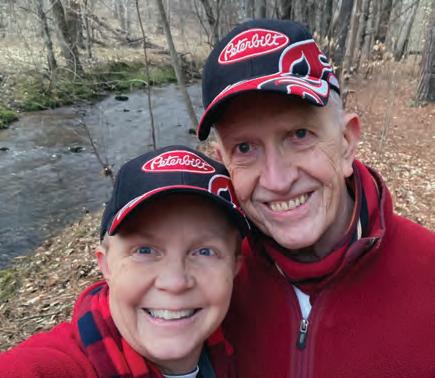 Anne Mitchell Whisnant, 55, Director, Graduate Liberal Studies, and Associate Professor of the Practice, Social Science Research Institute
Anne Mitchell Whisnant, 55, Director, Graduate Liberal Studies, and Associate Professor of the Practice, Social Science Research Institute
Bittersweet Milestones
“COVID was honestly a bittersweet time. My father-in-law, Mark, the president of North Georgia Technical College, passed away from COVID on September 13, 2020. Then in January 2021, my husband, Andrew, and I found out we were pregnant with our first child, Lilly, after a very long time. We thought we couldn’t have kids, so that was quite the surprise. When she was born on October 21, 2021, the joy of having her was indescribable. She just turned a year old, and I know she’ll never know her grandfather, and he’ll never know her. We want her to be happy and healthy and treat others the best way possible, and we’ll continue to tell her about her Papa when we can. We can’t wish Mark back because he’s not coming back. We’re living in the reality knowing that we can’t change it; it’s something Ecclesiastes calls our lot in life. COVID-19 brought out the worst for so many families, including ours, but it also brought so much good.”
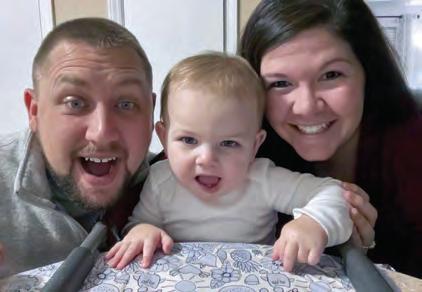 Marissa Ivester, 34, Fellowship Program Coordinator, Office of Pediatrics
By Stephen Schramm and Jack Frederick
Marissa Ivester, 34, Fellowship Program Coordinator, Office of Pediatrics
By Stephen Schramm and Jack Frederick
working.duke.edu 9
After giving birth to daughter, Lilly, in 2021, Marissa Ivester, right, enjoys the joys of parenthood with her husband, Andrew. Courtesy of Marissa Ivester.
Anne Whisnant, left, and husband David enjoy a walk on Chapel Hill’s Morgan Creek Trail in 2021. Courtesy of Anne Whisnant.
William Edward Hammond has studied the intersection of health, data and technology since the 1960s.
Start Here

LEADERSHIP and PROFESSIONAL DEVELOPMENT
2023 COURSE CATALOG
It’s a journey.
Take a minute to think about your career. Where do you see yourself in the next three to five years? What professional skills will assist you along the way? How can Learning and Organization Development help you?
Duke Learning and Organization Development (L&OD) aims to drive strategic learning and development through robust and rigorous solutions, enabling individuals, teams, and organizations to achieve extraordinary results in education, research, and patient care.

Our professional development engagements allow employees to continue to stay relevant in their field, be competent in their profession, and grow as leaders in their own learning.
We offer courses multiple times a year, allowing flexibility for our learners to find the right course, certificate program, or academy that aligns with their overall career goals and aspirations. Let’s get started!
Dear Learner, What an amazing time to be at Duke! We have prepared a plethora of resources for you, as you determine what learning journey you will take this year. Whether it’s one of our professional development courses, certificate programs or academies, you will gain the skills and tools you’ll need to remain relevant in your field and grow as a leader in your own learning.
Let the journey begin,
Keisha P. Williams, MPA Assistant Vice President, Duke Learning and Organization Development
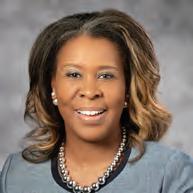
DUKE UNIVERSITY | DUKE UNIVERSITY HEALTH SYSTEM
Pull out to plan for later
2023 PROFESSIONAL DEVELOPMENT COURSES
Hello!
(listed by calendar date)
February
PowerPoint Level 1 Introduction (2 days)
Tuesday, February 7, 2023
$170 I CEU 0.8
Sit Lead II®: Managers’ Role in Growing Employees (2 days)
Wednesday, February 8, 2023
$500 I CEU 1.2
Resilience: Building Skills to Endure Hardship
Wednesday, February 15, 2023
$150 I CEU 0.3
Navigating Challenging Personalities
Wednesday, February 15, 2023
$150 I CEU 0.4
Keys to Supervisory Success
Thursday, February 16, 2023
$150 I CEU 0.4
Excel Level 1 Introduction (2 days)
Tuesday, February 21, 2023
$170 I CEU 0.8
Train the Trainer 2: The Basics of Training (In-person)
Wednesday, February 22, 2023
$200 I CEU 0.4
Strengths Finder: Discover Your Greatest Talents!
Monday, February 27, 2023
$175 I CEU 0.3
CC® Mastering Dialogue (3 days)
Tuesday, February 28, 2023
$600 I CEU 1.2
March
Fundamentals of Coaching
Monday, March 6, 2023
$150 I CEU 0.4
Managing Multiple Priorities
Tuesday, March 7, 2023
$150 I CEU 0.4
Excel Level 2 Intermediate (2 days)
Tuesday, March 7, 2023
$170 I CEU 0.8
SLII®: Self Leadership - Growing Your Career & Self Awareness (2 days)
Thursday, March 9, 2023
$300 I CEU 0.6
Access Level 1 Introduction (2 days)
Tuesday, March 14, 2023
$170 I CEU 0.8
Emotional Intelligence (2 days)
Monday, March 20, 2023
$285 I CEU 0.8
For a full description and details on courses offered by Learning & Organization Development, please visit us online at hr.duke.edu/training
Train the Trainer 2: Designing Training (In-person)
Wednesday, March 22, 2023
$150 I CEU 0.4
Dimensions of Management (2 days)
Tuesday, March 28, 2023
$600 I CEU 1.0
Excel Level 2 Pivot Tables
Tuesday, March 28, 2023
$60 I CEU 0.2
Excel Level 1 Formulas & Functions Basics
Thursday, March 30, 2023
$60 I CEU 0.2
Excel Level 2 Formulas & Functions Intermediate
Thursday, March 30, 2023
$60 I CEU 0.2
April
Moving from Peer to Supervisor
Tuesday, April 4, 2023
$150 I CEU 0.4
Communicating with Diplomacy & Tact I
Tuesday, April 4, 2023
$150 I CEU 0.4
Excel Level 1 Introduction (2 days)
Tuesday, April 4, 2023
$170 I CEU 0.8
Raising Accountability while Managing a Hybrid Team
Thursday, April 6, 2023
$150 I CEU 0.4
Facilitate Virtual Learning (2 days)
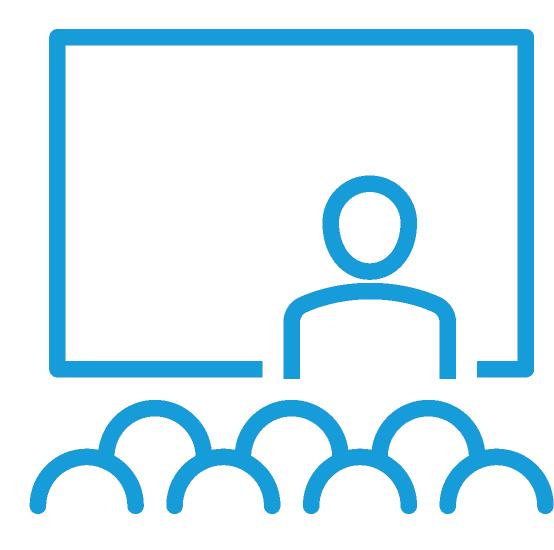
Monday, April 17, 2023
$200 I CEU 0.6
Feedback Fundamentals
Tuesday, April 18, 2023
$150 I CEU 0.4
Leading through Generational Differences in the Post-COVID Workplace (In-person)
Wednesday, April 19, 2023
$200 I CEU 0.3
Transformational Leadership
Wednesday, April 19, 2023
$150 I CEU 0.3
Project Management (2 days)
Monday, April 24, 2023
$200 I CEU 0.7
Train the Trainer 3: Instructor-Led Training & Platform Skills (In-person)
Wednesday, April 26, 2023
$200 I CEU 0.6
Managing from the Middle
Thursday, April 27, 2023
$200 I CEU 0.3
May
Microsoft Visio Level 1 (2 days)












Tuesday, May 9, 2023
$200 I CEU 0.8
Excel Level 2 Intermediate (2 days)
Tuesday, May 9, 2023
$170 I CEU 0.8
Keys to Supervisory Success
Wednesday, May 10, 2023
$150 I CEU 0.4
Navigating Challenging Personalities
Thursday, May 11, 2023
$150 I CEU 0.4
Managing Multiple Priorities
Wednesday, May 17, 2023
$150 I CEU 0.4
Access Level 2 Intermediate (2 days)
Tuesday, May 23, 2023
$170 I CEU 0.8
Communicating with Diplomacy & Tact II
Wednesday, May 31, 2023
$150 I CEU 0.4
June
Leader as Coach (2 days)
Thursday, June 1, 2023
$200 I CEU 0.6
Strengths Finder: Discover Your Greatest Talents!
Thursday, June 8, 2023
$175 I CEU 0.3
Excel Level 3 Advanced (2 days)
Tuesday, June 13, 2023
$170 I CEU 0.8
Personality & Effective Communication (In-person)
Thursday, June 15, 2023
$175 I CEU 0.3
CC® For Mastering Dialogue (3 days)
Wednesday, June 21, 2023
$600 I CEU 1.2
Valuing Differences
Thursday, June 22, 2023
$200 I CEU 0.3
Access Level 3 Advanced (2 days)
Tuesday, June 27, 2023
$170 I CEU 0.8
SLII®: Self Leadership - Growing Your Career & Self Awareness
Wednesday, June 28, 2023
$300 I CEU 0.6
July
Excel Level 1 Introduction
Tuesday, July 11, 2023
$170 I CEU 0.8
Moving from Peer to Supervisor
Tuesday, July 25, 2023
$150 I CEU 0.4
Word Level 2 Intermediate (2 days)
Tuesday, July 25, 2023
$170 I CEU 0.8
Raising Accountability while Managing a Hybrid Team
Wednesday, July 26, 2023
$150 I CEU 0.4
August
PowerPoint Level 2 Intermediate (2 days)
Tuesday, August 1, 2023
$170 I CEU 0.8
Keys to Supervisory Success
Tuesday, August 8, 2023
$150 I CEU 0.4
Critical Thinking Skills
Thursday, August 10, 2023
$150 I CEU 0.3
Communicating with Diplomacy & Tact I
Thursday, August 10, 2023
$150 I CEU 0.4
Conflict Resolution
Tuesday, August 15, 2023
$200 I CEU 0.3
Microsoft Teams
Tuesday, August 15, 2023
$120 I CEU 0.4
Fundamentals of Coaching
Thursday, August 17, 2023
$150 I CEU 0.4
Emotional Intelligence (2 days)
Wednesday, August 30, 2023
$285 I CEU 0.8
September
Excel Level 2 Charts & Graphs
Tuesday, September 5, 2023
$60 I CEU 0.2
Excel Level 2 Pivot Tables
Tuesday, September 5, 2023
$60 I CEU 0.2
Consulting Services
Feedback Fundamentals
Wednesday, September 6, 2023
$150 I CEU 0.4
Managing from the Middle
Thursday, September 7, 2023
$200 I CEU 0.3
Excel Level 1 Formulas & Functions Basics
Thursday, September 7, 2023
$60 I CEU 0.2
Excel Level 2 Formulas & Functions Intermediate
Thursday, September 7, 2023
$60 I CEU 0.2
Microsoft Visio Level 2 (2 days)
September 12, 2023
$200 I CEU 0.8
Managing Multiple Priorities
Tuesday, September 19, 2023
$150 I CEU 0.4
Access Level 2 Intermediate (2 days)
Tuesday, September 19, 2023
$170 I CEU 0.8
Sit Lead II®: Managers’ Role in Growing Employees (2 days)
Wednesday, September 20, 2023
$500 I CEU 1.2
CC® For Mastering Dialogue (3 days)
Tuesday, September 26, 2023
$600 I CEU 1.2
Valuing Differences
Wednesday, September 27, 2023
$200 I CEU 0.3
October
Excel Level 2 Intermediate (2 days)
Tuesday, October 10, 2023
$170 I CEU 0.8
Communicating with Diplomacy & Tact I
Wednesday, October 11, 2023
$150 I CEU 0.4
Project Management (2 days)
Thursday, October 12, 2023
$200 I CEU 0.7
Train the Trainer Boot Camp (3 days) (In-person)
Monday, October 16, 2023
$700 I CEU 1.8
Microsoft OneNote Level 1 (2 days)








Tuesday, October 24, 2023
$170 I CEU 0.8
Moving from Peer to Supervisor
Wednesday, October 25, 2023
$150 I CEU 0.4
L&OD focuses on developing, improving, and sustaining organizations and teams. Our experienced practitioners are dedicated to assessing, researching, designing, delivering, and evaluating team and organization engagements in the areas of strategic planning and implementation, organizational assessments, change management, competency development, team development, performance improvement, and retreat design and facilitation around organizational priorities.
Strengths Finder: Discover Your Greatest Talents!
Thursday, October 26, 2023
$175 I CEU 0.3
Word Level 3 Advanced (2 days)
Tuesday, October 31, 2023
$170 I CEU 0.8
November
Keys to Supervisory Success
Thursday, November 2, 2023
$150 I CEU 0.4
Resilience: Building Skills to Endure Hardship
Monday, November 6, 2023
$150 I CEU 0.3
SLII®: Self Leadership - Growing Your Career & Self Awareness (2 days)
Monday, November 6, 2023
$300 I CEU 0.6
Navigating Challenging Personalities
Thursday, November 9, 2023
$150 I CEU 0.4
Communicating with Diplomacy & Tact II
Monday, November 13, 2023
$150 I CEU 0.4
Excel Level 3 Advanced (2 days)
Tuesday, November 14, 2023
$170 I CEU 0.8
Leader as Coach (2 days)
Tuesday, November 28, 2023
$200 I CEU 0.6
Personality & Effective Communication
Thursday, November 30, 2023
$175 I CEU 0.3
December
Facilitate Virtual Learning (2 days)
Friday, December 1, 2023
$200 I CEU 0.6
Managing Multiple Priorities
Monday, December 11, 2023
$150 I CEU 0.4
Transformational Leadership
Tuesday, December 12, 2023
$150 I CEU 0.3
Access Level 3 Advanced (2 days)
Tuesday, December 12, 2023
$170 I CEU 0.8
We have worked with more than 100 departments and administrative units from across Duke University and Duke University Health System. All services are customized to meet the specific needs of your organization. The first step in engaging our services is to call us at 919-613-7600 or contact Gina Rogers, gina.rogers@duke.edu to discuss your needs and unit goals.
Who’s Who? Meet the L&OD Team
Williams Assistant Vice President Learning & Organization Development
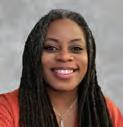
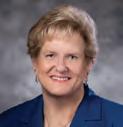
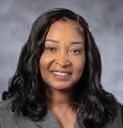
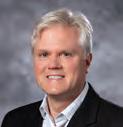
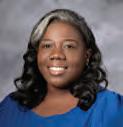
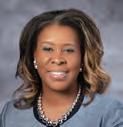 Farrell Assistant Director; Instructional Design
Farrell Assistant Director; Instructional Design

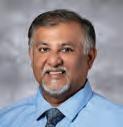

Complete Your Certificate of Excellence
L&OD will be refreshing its Certificate of Excellence program in the coming year, so all those working toward certificates should aim to complete their requirements by Friday, June 30, 2023, before the new program is launched.
For more information on Certificate Programs, visit: hr.duke. edu/certificates or contact Joy Birmingham, joy.birmingham@duke.edu
L&OD’s 2023 catalog is available electronically. To download an accessible PDF version, please visit hr.duke.edu/learning
Special Development Programs
Duke offers a number of special programs targeted to specific audiences or designed for specific career tracks. Some of these programs are offered through Learning & Organization Development and others are offered through other departments at Duke.
These programs include manager and leader development academies that feature 12-month initiatives to build talent from within. It also includes career track programs such as Foundational Skills that prepares service staff for entrylevel administrative roles and Guide to Managing at Duke programs that develop and enhance managerial skills among University & DUHS managers.
For more information on Special Development Programs visit: hr.duke.edu/training/programs
Subscribe to our blog. sites.duke.edu/lodtraininghub/organization-development
Keisha
Abaina
Donald Shortslef Sr. L&OD Consultant
Gina Rogers Associate Director; Organization & Workforce Development
Joy Birmingham Associate Director; Leadership & Professional Development
402 and 406 Oregon Street • Box 90463 • Durham, North Carolina 27708
Marjorie
Siegert Sr. L&OD Consultant Michelle Jones Operations Manager Srini Iyengar Senior Technology Partner
Get Support for Aging Family Members
Find resources and answers when caring for elders

In 2013, Karen Allen received a phone call from her mother’s longtime neighbor in Schenectady, New York. Allen learned then that her mother, Arlys, a retired clerk who worked for decades at the drug store Glenville Pharmacy, had injured her right shoulder. She was also experiencing memory problems, early indications of what was eventually diagnosed as dementia.
Suddenly, Allen, a nurse practitioner for the Duke Cancer Center who has worked at Duke for 41 years, felt overcome with questions about how to care for her elderly mother, who lived a 10-hour drive from Durham. For help, Allen turned to the Duke Employee Elder Care Consultation Service, a free benefit available to all Duke faculty and staff. The services helped Allen navigate crucial decisions for nine years before her mother’s death in 2021.
“They were so helpful because I was in a panic and lost,” Allen said.
Operated through the Duke Dementia Family Support Program — part of the Duke Aging Center — the program offers ongoing support through confidential consultations related to geriatrics, family caregiving and dementia. Consultations can be in-person, through email, on the phone, or on Zoom.
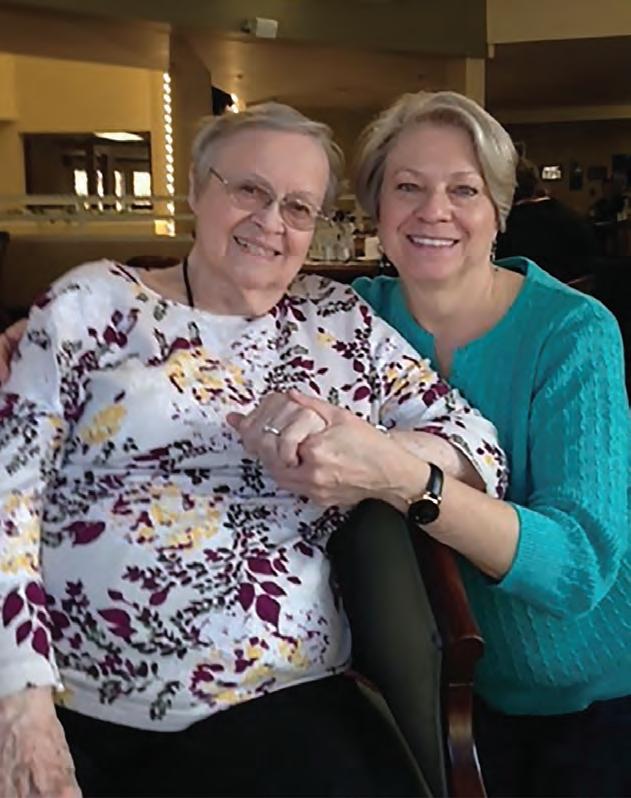
From May 2021 through April 2022, the program’s four social workers met with 187 employees, many of whom were like Allen and had urgent concerns but didn’t know where to start.
“Folks will often say, ‘I just have no idea,’ and you shouldn’t have any idea until you’re in the moment,” said Natalie Leary, a social worker and program director for the Center for the Study of Aging. “That’s why we’re here: to help folks as they’re new to this journey.”
Duke Dementia Family Support Program connected Allen with a daughters’ support group, which is open to the public and attended by staff, faculty and their families. The bi-monthly confidential gathering is one of eight groups offered by the program. It's where Allen could be emotional, openly express concerns, listen to peer advice and talk through decisions she and her siblings were making, like moving her mother to a facility in Durham and seeking care as the dementia progressed.
Decisions about caring for aging loved ones became increasingly important during the pandemic, as COVID-19 complicated how families could check in on elders. Also, finding long-term care communities became more difficult during vulnerable times as the virus spread rapidly.
Antwan Lofton, interim vice president for Duke Human Resources, said the pandemic underscores the value of the program for a post-COVID-19 world.
Get Support
To make an appointment for elder care support, call 919-660-7510 or send an email to DDFSP@duke.edu Learn more at duke.is/6wwut
“We value our employees from a holistic approach, not just what they produce, but we value them as people,” Lofton said. “Ensuring that their parents have the resources that they need, while also working with the children to make sure that they have resources that they need, is very important to us.”
By Jack Frederick
10 WORKING@DUKE
Duke was crucial in helping nurse practitioner Karen Allen, right, care for her mother, Arlys, seen here in 2017. Courtesy of Karen Allen.
When the pandemic began, Glenn Setliff wasn’t excited about working from home. He liked his sunny Pearson Building office, where everything he needed was at his fingertips. Now working from his Burlington home two days a week, his sentiments have changed.
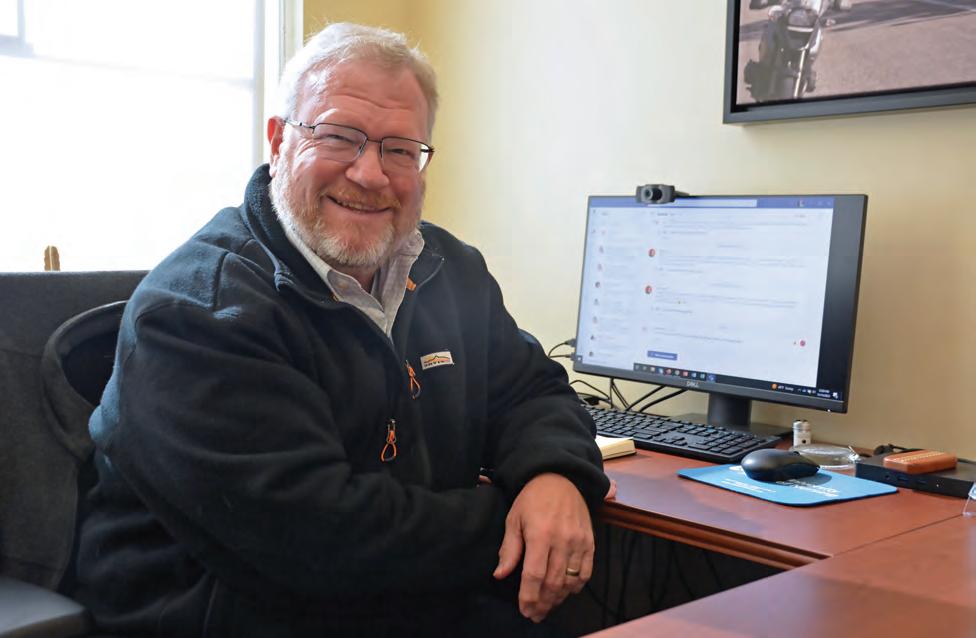
“I’m more productive at home than I was at the office,” said Setliff, Duke University School of Nursing assistant dean for Information Technology. “I think a lot of other people found that out, too.”
In the post-pandemic work landscape, a hybrid work arrangement has become a popular option for certain roles. A survey by the McKinsey & Company business consulting firm shows that of the 58 percent of American workers with the option to work remotely at least once per week, 87 percent do.
While a hybrid arrangement offers flexibility, sticking to a routine schedule can be a recipe for success, according to Fuqua School of Business Associate Professor of Marketing Jordan Etkin.
“It’s probably better for most people, on a longer-term basis, to have a plan for being in the office on these days and home on these days,” Etkin said. “It helps manage any stress that comes with deciding where to work.”
How to Find the Right Hybrid Schedule
Approaches for building effective weekly schedules
With schedules as varied as roles, staff and faculty share strategies for building a hybrid routine.
Jump In on Monday
A 2022 study of keycard data by Kastle, a national building security firm, shows that Mondays and Fridays – due to their proximity to the weekend – are the most popular remote workdays.
For Duke Learning & Organization Development (L&OD) Associate Director Joy Birmingham, who works mostly remote but comes to campus for meetings and to lead training sessions, Mondays are her first choice for on-site work.
“I’ve heard many people in my classes say Mondays or Fridays make good, productive bookends to their weeks,” Birmingham said.
Stay Plugged In
Professor of Pathology Laura Hale fits her schedule around on-site teaching, lab and clinical work. Most Tuesdays and Thursdays she’s at home reviewing literature, working on proposals and analyzing data.
While many of her colleagues are on campus midweek, Hale said her team’s embrace of Zoom through weekly virtual catch-up meetings keeps everyone connected and on the same page.
“I never felt out of touch with my colleagues,” Hale said. “Working remotely, we’ve done a good job staying connected.”
Focused Finish on Friday
After spending Mondays, Tuesdays and Wednesdays with colleagues on campus, the School of Nursing’s Setliff reserves Thursdays and Fridays for home to write, edit and plan.
“In the office, there’s not a lot of time for strategic thinking,” Setliff said. “We all have to plan our work and think how we want to operationalize something.”
By Stephen Schramm
Sharpen your skills with Learning & Organization courses in 2023:
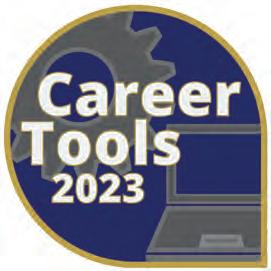
working.duke.edu 11
duke.is/6nvdy
Glenn Setliff splits his work week between home and his on-campus office in the Pearson Building. Photo by Stephen Schramm.
Blueprint for a Bold

Duke’s strategic framework sets a path for the second century

As Duke University moves toward its second century, what kind of institution will it be?


That question led Duke University President Vincent E. Price and community members to create Duke’s strategic framework, a set of five guiding priorities for the future of Duke: empowering the boldest thinkers to make the discoveries of tomorrow; transforming teaching and learning; renewing the campus community; partnering with purpose in our region; and engaging Duke’s global network of alumni and friends.
“The framework offers all of us a chance to think together about our turn to the future, about how we can remain true to the Duke we have always been while charting our course toward the even more extraordinary Duke we are destined to become,” Price said.
Price introduced the framework in 2019 after consulting with students, staff, faculty, alumni, trustees, and members of the Durham community. Nearly four years later, work guided by the framework’s five planks is unfolding across the broader university.

Exploring New Ways to Learn
Each year, Duke graduates enter a world facing real and intractable problems. By transforming teaching and learning, Duke ignites passion among students to work toward solutions to the world’s most pressing challenges.

Embodying that charge are two university courses, which, since 2021, give students and faculty opportunities to deeply explore issues of race and climate change.
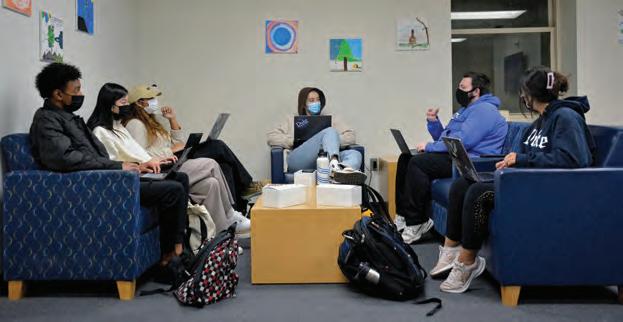
“These are critically important social issues which are relevant to young folks and manifesting in their lives,” said Jay Pearson, H.M. Foundation associate professor of public policy and Sanford School of Public Policy associate dean of diversity, equity and inclusion. “This is an opportunity for students to get profound insight, gain foundational knowledge, and learn how to communicate that effectively. So, when there’s an opportunity
to engage in positive action, they can move forward and do something about it.”
Pearson helped lead “UNIV 101: Let’s Talk About Race,” which was offered in 2022 with “Univ 102: Let’s Talk About Climate Change.” The course, available to all undergraduates with no pre-requisites, featured lectures from Duke experts and beyond, and lively dinnertime discussions.
Designed by Pearson and Charmaine Royal, the Robert O. Keohane Professor of African & African American Studies, Biology, Global Health and Family Medicine & Community Health, the course explored ways race shapes health, foreign policy, and the creation of a stratified society.
“It’s been incredibly rewarding,” Pearson said.
Purposeful Partnerships
As Duke and Durham evolve, Duke is committed to partnering with purpose — building relationships with neighbors to improve health and well-being in the community.
To advance the effort, Duke Civic Engagement, part of the Office of Durham and Community Affairs, joined with university and health system partners to create the CommunityEngaged Scholarship Collaborative in 2021. The collaborative brings faculty, staff and community members together to help Duke ask relevant research questions, create real solutions and build lasting relationships.
“It needs to be a two-way street,” said Elizabeth Shapiro-Garza, associate professor of the practice at the Nicholas School of the Environment and Duke Civic Engagement Faculty Director of Community-Engaged
12 WORKING@DUKE
Students in the “UNIV 101: Let’s Talk About Race” course have discussions with faculty and team up for group projects. Photo by Stephen Schramm.
Vincent E. Price
Future
climate change and weaves together several of the framework’s priorities.
Through continuing to improve campus sustainability –Duke’s carbon emissions are down nearly 45 percent since 2007 – and exploring environmental justice, climate resilience and data-driven solutions, the initiative reflects the strategic framework’s planks of renewing our campus community and empowering our boldest thinkers. Supported by $36 million in gifts and featuring input from alumni in policy and energy fields, the commitment also showcases the strategic framework’s priority of engaging our global network of alumni.
Duke’s response to the climate crisis is as multi-faceted as the problem itself. In 2022, five interdisciplinary research teams were awarded two-year grants of up to $200,000 for data-driven projects examining climate change and health.
Tomi Akinyemiju, associate professor in Population Health Sciences, secured support for her project, “Climate Change, Radon Exposure and Lung Cancer.”
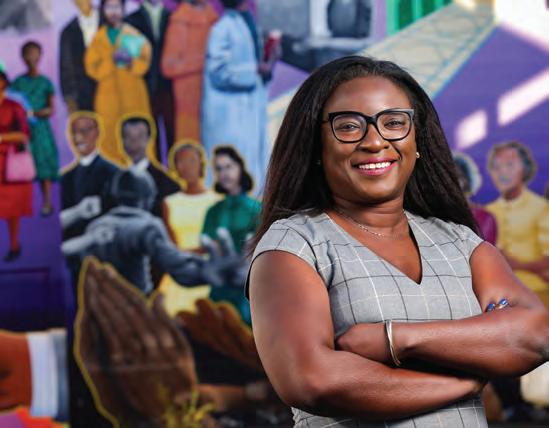
Scholarship. “It’s not just Duke saying ‘we’re going to engage with you.’ Substantive, ethical, engaged scholarship means forming deep, reciprocal, sustainable and impactful partnerships to co-produce knowledge.”
The collaborative provides opportunities to learn from experienced faculty, staff and community partners, and funding for new and existing projects.
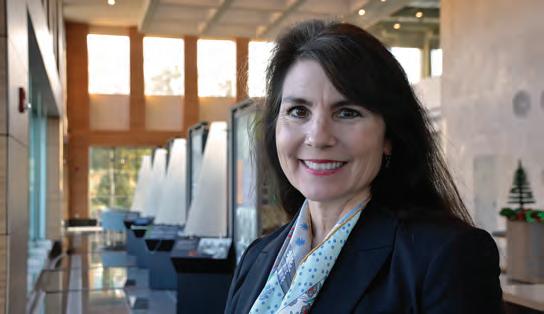
Social Science Research Institute Research Scholar Ann Brewster is one of the collaborative’s fellows, earning support for her “Phail Wynn Jr. Program for Academically At-Risk Students.” Named after the late Phail Wynn Jr., former Duke Vice President for Durham and Regional Affairs and an early supporter of Brewster’s research, the program builds the metacognitive decision-making skills of adolescents in public schools who may be dealing with adversity.
Over six weeks, students work with Duke undergraduate volunteers, charting paths toward goals, such as earning a driver’s license and seeing how choices affect longer-term aspirations. With support from the collaborative, Brewster has expanded the program to schools in Person and Granville counties.
“I love that we have a diverse group doing this kind of work, and we’re not in silos,” Brewster said. “We can share what’s working and who we can connect with. We don’t have to reinvent the wheel.”
Rising to Challenges
Launched in fall 2022, the Duke Climate Commitment marshals the institution’s resources and minds to addressing
The grant allows Akinyemiju’s team to test for radon in North Carolina homes and gather data about household behaviors and the prevalence of lung cancer, which kills more Americans each year than any type of cancer and can be caused by radon exposure. Combined with climate data, the information will feed a mathematical model that could predict the role climate-associated migration plays in radon-related lung cancer risk, giving policy makers valuable information for addressing the threat.
“Duke has taken on this commitment and is devoting resources to tackle this problem,” Akinyemiju said. “Climate change is the existential challenge of our lifetime and will exacerbate existing inequalities. This is not trivial, and it requires a robust sustained commitment to make sure this work continues.”
By Stephen Schramm
Learn about the strategic framework:: president.duke.edu/strategic-framework
working.duke.edu 13
Tomi Akinyemiju’s research into radon, lung cancer and climate-related migration received a grant through the Duke Climate Commitment. Photo by Ken Huth.
Ann Brewster is a fellow with the Community-Engaged Scholarship Collaborative.
Photo by Stephen Schramm.
Racial Justice Bringing an Inquisitive Mind to Inequality
A lifelong curiosity guides Sandy Darity’s influential work on the nation’s racial wealth gap

William (Sandy)
Darity Jr. says his wife Kirsten Mullen, who is a writer and folklorist, compares researching complicated societal issues to placing pieces of bread on water. The bread represents ideas one’s research unearths. Bobbing on the surface, the pieces wait for something to swoop down and snatch them.
For 45 years, Darity, the Samuel Dubois Cook Professor of Public Policy, African and African American Studies, Economics and Business, has studied racial inequality. As the nation’s wealth gap grows, Darity’s work, and potential solutions he’s researched – such as reparations for Black Americans – have found hungry audiences.
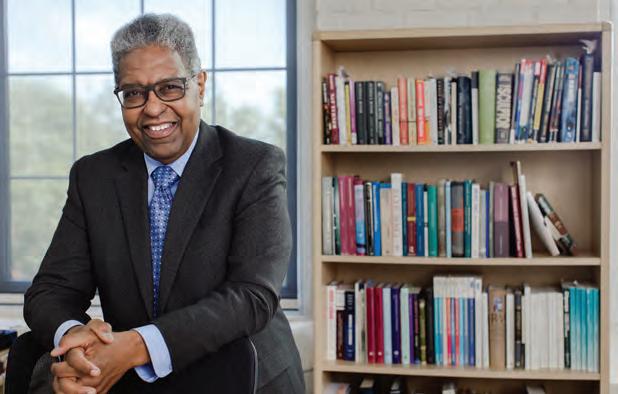
“I didn’t expect the bread on the water to necessarily be picked up while I was still living,” said Darity, 69. “I don’t anticipate reparations to happen in my lifetime, but I hope I’ve put resources out there that people can use to move the cause forward.”
A Duke faculty member since 1999 and director of the Samuel DuBois Cook Center on Social Equity since 2015, Darity carries a lifelong curiosity about inequality and race. Growing up, he saw how access to the nicest beaches of Alexandria, Egypt – where he lived while his father worked at the World Health Organization – was determined by financial status. Accompanying friends to both desirable, and lessdesirable beaches, Darity wondered why families with similar intelligence and ambition had differences in wealth.
Darity, who spent most of his adolescence in Massachusetts, recalls visiting his grandmother in Wilson, North Carolina, where railroad tracks divided Black and white neighborhoods, and his parents refused to patronize a movie theater that confined Black customers to the balcony.
Seeing economics as a way to understand inequality, Darity found most theories failed to fully explain why some populations build wealth, while others don’t. Darity saw how systemic obstacles to building and sharing wealth left generations of Black Americans behind. With current Federal Reserve data showing the average difference between white and Black household wealth at approximately $841,000, Darity proposes closing the gap by the federal government making reparations payments to Black Americans whose ancestors were enslaved in the United States.
Recently, reparations were discussed in primary debates prior to the 2020 presidential election. In 2020, Darity and Mullen published their award-winning book, From Here to Equality: Reparations for Black Americans in the Twenty-First Century, now in a second paperback edition.
At Duke, the Cook Center, which Darity founded, continues the conversation through research, collaboration and, since 2021, an Inequality Studies minor administered jointly with the Department of History. In 2022, Cook Center Director of Strategic Initiatives and Collaborations Gwendolyn Wright, Associate in Research Lucas Hubbard and Darity co-edited the book, The Pandemic Divide: How COVID Increased Inequality in the United States, featuring research from Cook Center scholars.
“With the timeliness of the issue and the skills that our scholars have, we felt we it was important for the center’s voice to be expressed in the context of the pandemic,” Darity said. Through his work, and that of his colleagues, Darity keeps unearthing bold ideas, leaving more bread on the water.
By Stephen Schramm
14 WORKING@DUKE
Toward
Learn about the Samuel DuBois Cook Center on Social Equity: socialequity.duke.edu
Sandy Darity, Duke’s Samuel Dubois Cook Professor of Public Policy, African and African American Studies, Economics and Business, has explored the nation’s racial wealth gap for 45 years. Photo by Justin Cook.
Framed with Care at a Savings

Use a discount at Bull City Art & Frame to display cherished belongings
As Christmas approached, Jennie Simpson knew she’d found the perfect gift for her son, Lee.
She had ordered an art piece created and signed by Mortis Ghost, a Belgian video game developer who created OFF, her son’s favorite surreal computer game. The art, featuring deep hues of purple and black, depicts a scene in a library, a setting of the game.

The gift commemorated an important time for mother and son as they grieved the death of Lee’s father, Kyle. After his father died, Lee dove into learning how to create his own computer video games, working to create worlds and tell stories in community with other gamers. The special hobby helped Lee, and OFF remained a favorite game of his to play.
But before Simpson could give her son the art piece, she needed help properly displaying it.
Using a 10 percent discount for staff and faculty, Simpson took the art to Bull City Art & Frame Company in Durham’s Historic Brightleaf Square. With attention to detail, Bull City Art & Frame listened to Simpson and created a matching sleek black wooden frame that helped the art come to life on the wall.
“They were interested in what I wanted and why I wanted it,” said Simpson, a strategic services associate in Duke Performance Services. “They treated me like I was their only customer, and all of their suggestions were to help bring out what I wanted.”
When Lee opened the gift on Christmas Day, he cried and wrapped his mother in a tight hug. The piece now proudly hangs in his room as a tribute to his favorite game, and a memorial to his father.
For 15 years, Bull City Art & Frame [bullcityartandframecompany.com] owners Tiffany and Lewis Bowles, and their team of five framers, have been proud to play a part in helping clients display cherished items in a meaningful way.
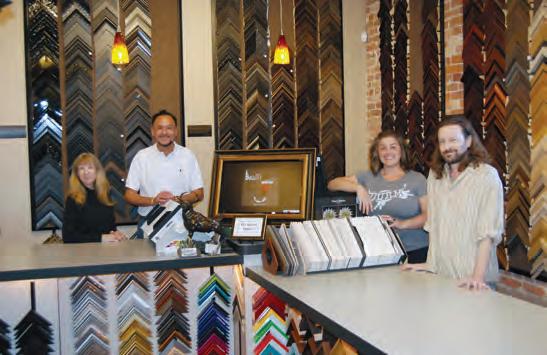
Working in what the owners call “the shadow of Duke Chapel,” Bull City Art & Frame has helped hundreds of Duke clients over the years — from Duke University Hospital and Facilities Management to Athletics and countless individual faculty and staff.
The small business boasts creating all custom frames in-house, including art, diplomas, photos, awards and more. When it comes to their clients, Lewis Bowles said his motto has always remained that no project is too big or too small to be worth their time and attention.
“We’re here to serve the masses, and we’re here for everyone,” said Bowles, a Durham native. “We’ll do everything from routine glass changes to Marc Chagall originals, and we’ll meet every price point.”
By Jack Frederick
Visit hr.duke.edu/discounts to access framing discounts and for a full list of vendor savings. Your NetID and password may be needed to access deals.
working.duke.edu 15
A framed art piece featuring a library scene from one of Lee Simpson’s favorite computer video games.
Photo courtesy of Jennie Simpson.
Left to right, Bull City Art & Frame staff Michelle Draughon, Lewis Bowles, Tiffany Bowles, and Will Rote stand ready to help frame cherished items.
Photo by Jack Frederick.
What you’re sharing online
Duke Romance Studies
@DukeRomanceSt
Professor Luciana Fellin believes that an important part of professional development is finding opportunities to work with others. Learn how her collaboration with fellow @DukeU faculty on socially meaningful research projects is creating greater representation and inclusiveness.
Working@Duke @WorkingatDuke • Jan 3 Duke colleagues share their professional growth hopes for 2023, and see how resources that helped them can also assist in your journey: ow.ly/Lu8R50MhcVH
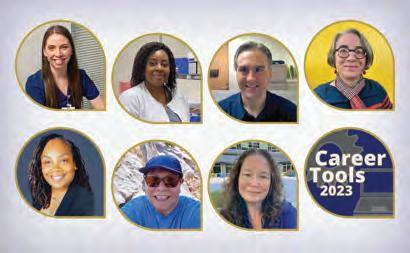

@DukeU @DukeHealth @DukeU_Nursing @DukeRomanceSt
dukefuqua • Follow



dukefuqua Last week, Colin Tjalma in our Building Management Office celebrated 40 years of working at Fuqua. While she says 40 years is a very long time, she plans to stick around a while longer...
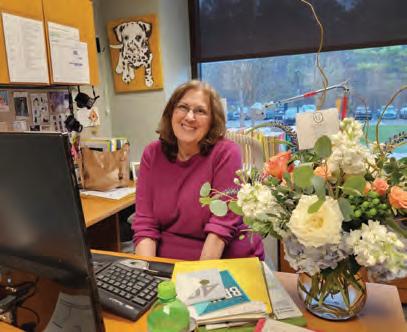
"I have always felt challenged by the work, which still keeps me happy and feeling like I make a difference. But truly, my lengthy tenure has been due to the wonderful people, always kind and appreciative as you work to meet their needs."
#teamfuqua @workingatduke
Go online to discover more News You


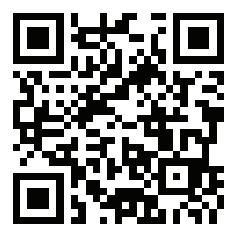
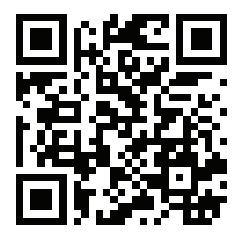


Can Use:
Borrow gear for free Borrow a range of equipment at no charge from the Service Desk at The Link in Perkins Library.
Learn IT at Lunch
Pick from several topics and learn about technology and tools such as Canva in a relaxed environment during the lunch hour.
Nominate a Blue Devil of the Week


Is there a colleague at Duke who has an intriguing job or goes above and beyond to make a difference?

Share story ideas by emailing working@duke.edu DUKE SOCIAL
Connect with Working@Duke on Social Media Duke University Office of Communication Services 705 Broad St., Durham, N.C. 27708
Instagram instagram.com/workingatduke Facebook facebook.com/WorkingatDuke Twitter twitter.com/WorkingatDuke
10:58 AM • Jan 4, 2023
267 likes JANUARY 10























 Clara Bailey, 58, Staff Assistant, Department of Medicine, Oncology
Clara Bailey, 58, Staff Assistant, Department of Medicine, Oncology





 Kristin Byrne, 41, Clinical Research Coordinator, Hematology
Kristin Byrne, 41, Clinical Research Coordinator, Hematology


 Anne Mitchell Whisnant, 55, Director, Graduate Liberal Studies, and Associate Professor of the Practice, Social Science Research Institute
Anne Mitchell Whisnant, 55, Director, Graduate Liberal Studies, and Associate Professor of the Practice, Social Science Research Institute
 Marissa Ivester, 34, Fellowship Program Coordinator, Office of Pediatrics
By Stephen Schramm and Jack Frederick
Marissa Ivester, 34, Fellowship Program Coordinator, Office of Pediatrics
By Stephen Schramm and Jack Frederick









 Farrell Assistant Director; Instructional Design
Farrell Assistant Director; Instructional Design




























